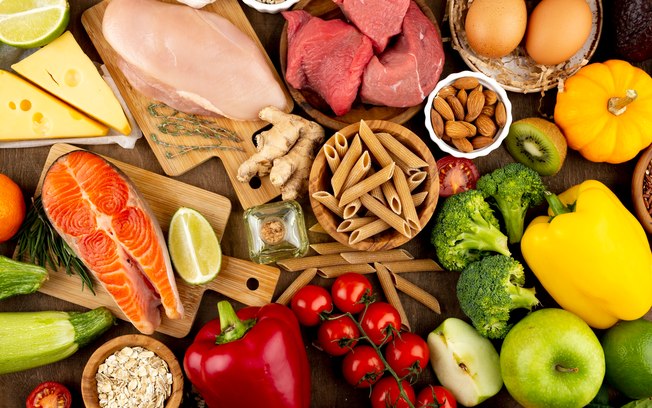According to a survey carried out by the National Cancer Institute (Inca), Brazil is expected to register up to 704,000 new cases of this type of pathology by 2025. In addition, data recently released by the World Health Organization (WHO) estimates that the number of new cases of cancer detected annually in 2050 will increase to almost 35 million, which represents an increase of 77% compared to the 20 million identified in 2022. The warning is part of the new estimates on the disease released at the beginning of the month by the International Agency for Research on Cancer (IARC).
In this sense, clinical and functional nutritionist Gisela Savioli and doctor Christian Aguiar, who is an authority on preventive and natural medicine, say that ensuring a healthy and balanced diet is the first step for those who want to live a long life, with great health and greater protection against illness.According to Gisela, there are some crucial foods to include in the diet that will be decisive in avoiding the inflammatory stage, a trigger condition for many diseases, including cancer.”The truth is that the anti-cancer diet is an anti-inflammatory diet, as natural as possible, without pesticides, preferably seasonal, with a wealth and variety of nutrients, antioxidants and bioactive compounds. This goes for any stage: prevention, treatment and combating chronic diseases,” she points out.
According to Christian Aguiar, although there is no absolute guarantee that consuming these foods will prevent cancer, research suggests that a diet rich in certain ingredients can reduce the risk of developing certain types of cancer. “These foods are generally rich in antioxidants, vitamins, minerals and phytochemicals that may have anti-cancer properties, and incorporating them into your diet can help promote health and reduce the risk of developing cancer,” explains the doctor.
See below five “anti-cancer” foods to include in your diet
Kale
For the nutritionist, kale is a real living “pharmacy”, as it is rich in nutritional components. It contains magnesium, which is the body’s maestro at mealtimes, as well as vitamin C, beta-carotene and indole 3-carbinol, known for its ability to prevent the proliferation of cancer cells. No wonder oncologists often say that cancer cells hate cabbage.
Broccoli
From the same family as cabbage, broccoli is an excellent source of vitamins A, C, E and K, as well as being rich in iron, potassium, calcium and phosphorus. However, there is a secret to preserving the nutritional and disease-protective properties of this food. “Broccoli needs to be steamed for no more than two minutes to preserve its crunchiness. The tip is to chew it 30 times before swallowing,” explains Gisela Savioli.
Brussels sprouts
The third food is Brussels sprouts, which are small but rich in antioxidants such as sulphur and magnesium, which help the liver to detox substances that make our bodies sick and inflamed. In addition to these foods, Savioli explains that it is important to include a variety of fruits, vegetables and legumes in your diet. “It’s no exaggeration to say that with every bite we contribute to our fate. It’s the factor that most interferes with the prevention of diseases or the acceleration of chronic conditions. And in the kitchen we have a natural pharmacy at our disposal. The more colorful the meal, the more protective it is,” she advises.
Garlic
Garlic contains antioxidant compounds, such as allicin, which help fight free radical damage to cells. This can help prevent DNA damage, which is one of the factors that contribute to the development of cancer. In addition, it has anti-inflammatory properties, which can help reduce chronic inflammation, which has been linked to the development of various types of cancer.
According to doctor Christian Aguiar, garlic can also stimulate the immune system, helping the body fight cancer cells and other health threats. Some studies suggest that garlic can help inhibit the formation of new blood vessels in tumors (angiogenesis), thus preventing the growth and spread of cancer. “Garlic has been shown to have anti-mutagenic properties, which means that it can help prevent genetic mutations that can lead to cancer.”
Ginger
Just like garlic and green tea, ginger is another food rich in antioxidants, such as gingerols, shogaols and gingerdione, which help neutralize free radicals in the body. These free radicals can damage cells and contribute to the development of cancer, so the antioxidants in ginger can help prevent this process. Ginger is also well known for its anti-inflammatory properties, which reduce chronic inflammation in the body. Chronic inflammation is associated with the development of several diseases, including cancer.
“Some studies suggest that ginger can help inhibit the formation of new blood vessels in tumors (angiogenesis), which can slow the growth and spread of cancer. In addition, ginger has also been shown to have inhibitory effects on metastasis, preventing cancer cells from spreading to other parts of the body,” reinforces Aguiar.
Want more content like this? Visit the official iG Recipes page.


